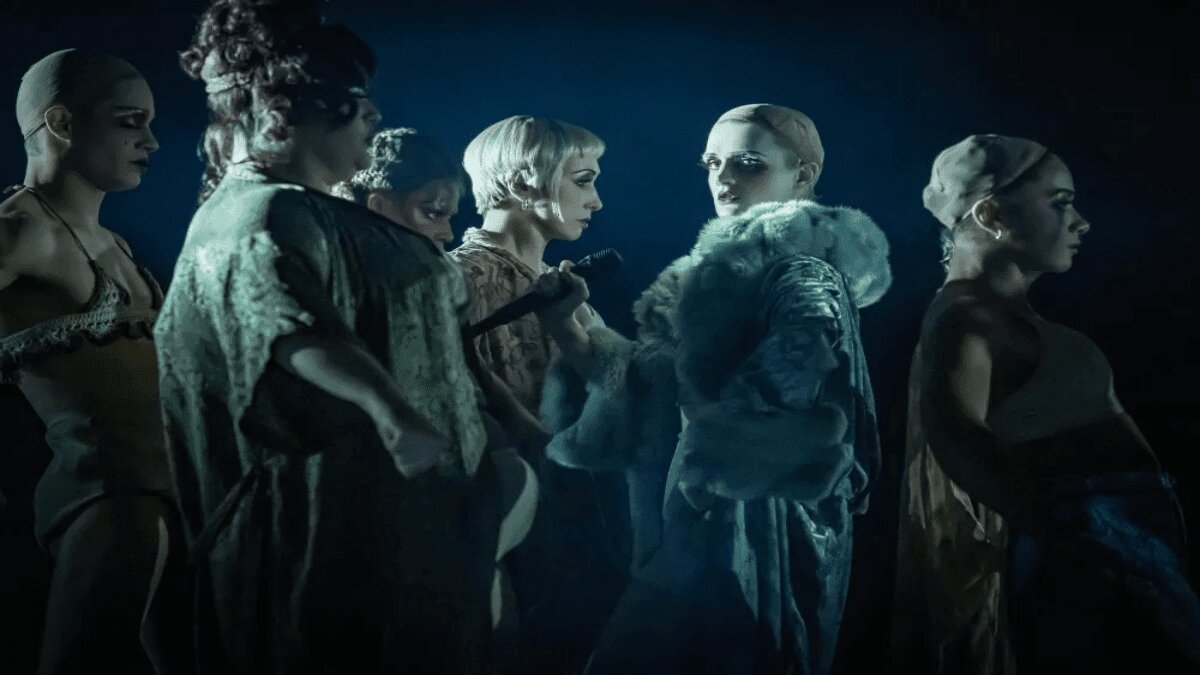In the annals of Broadway history, few productions have endured as long and resonated as deeply as “Cabaret.” For over half a century, this iconic American musical set in Nazi Germany has captivated audiences with its exploration of complex themes like sex work, abortion, and the indomitable spirit of its female protagonist, Sally Bowles.
Yet, amidst its many revivals and reimaginings, one aspect of “Cabaret” remained unchanged: its directors were exclusively men. That is, until now.
In a historic moment for Broadway, the latest revival of “Cabaret” at the Kit Kat Club marks the first time in the theater district’s history that a woman takes the helm as director. At just 38 years old, Rebecca Frecknall leads the charge in bringing a fresh perspective to this timeless classic, all against the backdrop of a historic siege on women’s rights.
As someone who experienced the show’s opening night firsthand, I can attest to the profound parallels between Sally’s journey and the experiences of today’s young women. Under Frecknall’s direction, Gayle Rankin’s portrayal of Sally embodies the essence of a woman navigating the complexities of modern life with raw authenticity. Her performance, particularly during the show’s titular number following an offstage abortion, evokes a sense of rawness and resilience that resonates deeply with audiences.
Rankin’s portrayal of Sally as a woman who chooses herself, despite the odds stacked against her, strikes a chord with viewers who find themselves grappling with similar challenges and choices in their own lives. In conversations with other young women, Rankin’s performance has left a lasting impact, reflecting our shared experiences and struggles in a world where our rights and choices are increasingly under threat.
However, despite the undeniable relevance and power of this production, some mainstream critics have missed the mark in their assessments. Instead of recognizing the significance of Rankin’s portrayal and its resonance with today’s audience, they have fixated on technical aspects and missed the underlying message.
This disparity in perception highlights a broader issue faced by women in the arts: the tendency to dismiss or downplay our perspectives and experiences. In a world where our voices are often marginalized or silenced, it’s disheartening to see critics fail to acknowledge the relevance of a production that speaks so directly to the realities of women’s lives today.
Yet, amidst the criticism, there are voices of support and recognition. John Kander, composer of “Cabaret,” has praised elements of this production as “stunningly reinvented,” while younger critics and audience members alike have celebrated Rankin’s portrayal for its authenticity and realism.
As we continue to push for greater representation and inclusivity in the arts, productions like “Cabaret at the Kit Kat Club” serve as a reminder of the transformative power of theater. By amplifying the voices and experiences of women, they create space for us to come together, to feel seen and heard, and to recognize that we are not alone in our struggles.
In the words of Herr Schultz, “We’re alive. And what good is it alone?” Through productions like this, we are reminded that theater has the power to bring us together, to make us feel alive, and to remind us that, despite the challenges we face, we are not alone in our journey.


